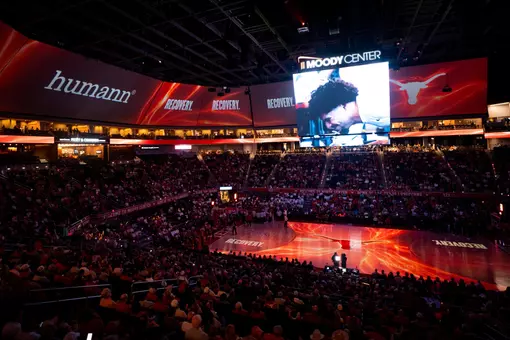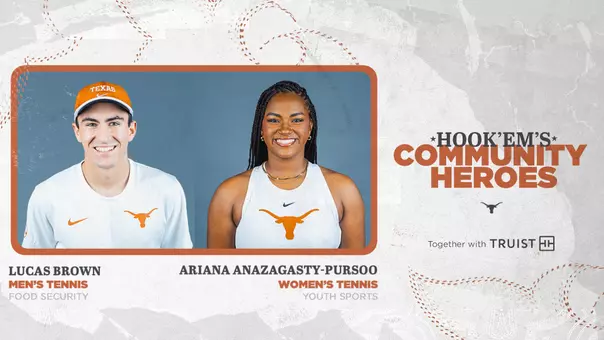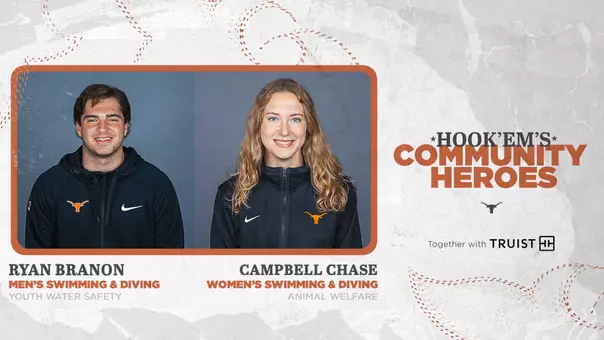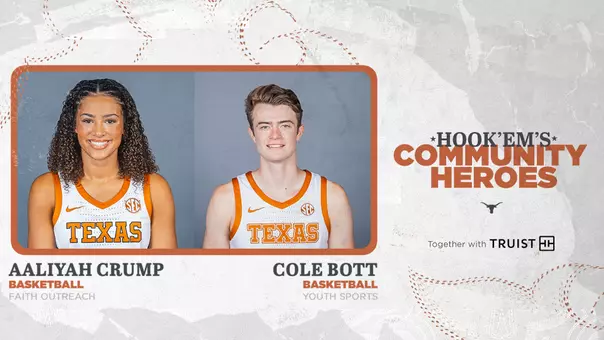The University of Texas at Austin Athletics
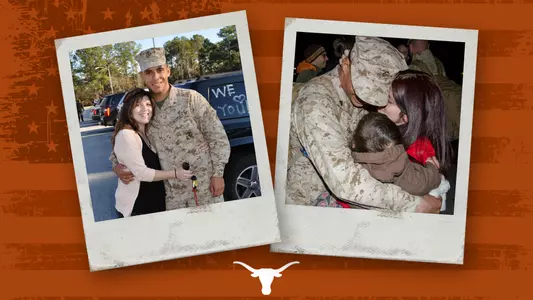
Texas Lottery® Veteran Recognition: Mario Chavez
11.26.2025 | Longhorn Sports Properties / Learfield
The former U.S. Marine will be honored when Texas Football hosts Texas A&M on Nov. 28.
Mario Chavez was 21 years old when he made the decision to join the U.S. Marine Corps. Chavez was excited by the uniform, but it was the calling for more that led him to the military.
"I was looking for a challenge, and mostly I wanted to be part of something bigger," Chavez said.
Chavez is a first-generation Marine. He graduated from high school in San Marcos, Texas in 2006, and with his brother also in the Air Force, Chavez was inspired to serve. From 2009-13, Chavez experienced two combat tours in Afghanistan and survived an IED explosion. He describes his four years with the Marines as "life-changing."
"It's brotherhood. It's teamwork. We work together for everything," said Chavez, who was a corporal and squad leader. "When you get out, you miss that bond of brotherhood and friendship."
His transition into civilian life as a combat veteran began in February 2013. The challenge of needing time to decompress and process the stress of constant combat was compounded by feeling out of place in a social and professional culture that can misunderstand the military ethos and often dismisses the effects of war.
"I was struggling to function," Chavez said. "It was sink or swim, and I was sinking. You feel like you don't have a purpose. You feel like you don't fit in."
Chavez did not work for almost three years. "What am I doing?" Chavez asked himself constantly, searching again for a way of life in which he could make a difference with and for others. Inspired by the love and motivation of his wife and two sons, Chavez broke free from the uncertainty, discovered veteran resources, and decided to use his GI Bill to learn a trade.
In 2019, Chavez completed an associate degree from Austin Community College, where he studied computers and information technology, and earned an HVAC license. Chavez currently works as a facilities services crew leader at the Dell Medical School.
"It's the purpose of helping. It's rewarding for me to help my team and lead by example," Chavez said. "Being in the Marines gives you skills that help in life – teamwork, leadership and the sense of wanting to be the best at everything. You have the confidence of wanting to lead people in the regular, civilian world. But how do you put that on a resume?"
Chavez continues to quietly model in his day-to-day life the traits heroically symbolized in the Marine Corps uniform, such as strength, courage and determination. Some battles simply do not end with deployment. For example, the injury he endured in the IED explosion later required spine surgery, and Chavez still has chronic pain from arthritis and sciatic nerve compression. He is also learning to manage anxiety and other quality-of-life impacts associated with PTSD.
"When I first got out, I was not able to understand what I was dealing with, felt like a foggy mind and not really knowing what was going on," Chavez said. "Eventually I reached out and got the help I needed. It's work sometimes to ease my mind. It's nightmares. I don't really like being in overcrowded areas."
Chavez said he focuses on being the best example he can for his two boys. He and his wife, Kristen, married after Chavez completed boot camp. Kristen's love and support were "a big part of both tours," and lifted Chavez to focus on his duty of deployment while still missing important moments at home.
"You put yourself to the side, and you also realize there's a possibility you are not coming back," Chavez said, describing the family sacrifices of combat service. "Thank you to my wife and kids for being my sun on my darkest days."
Every day now is a gift, a fresh chance to say, "I love you," to Kristen and his sons, Mason and Sebastian, and to show them with his life that anything is possible.
"Don't sell yourself short. It's better to be earned than given," Chavez said.
Thanks to the Texas Lottery, great things are happening all across Texas. The Texas Lottery consistently contributes nearly $2 billion of lottery revenue each year to good causes like public education and veterans' assistance programs. Beginning with the first veterans' dedicated scratch ticket game in 2009, the Texas Lottery has now contributed over $279 million to the Fund for Veterans' Assistance.
Since 1992, the Texas Lottery has generated more than $41 billion in revenue for the state of Texas. Through strict adherence to its vision, mission and core values, the Texas Lottery is dedicated to ensuring that this support continues. The Texas Lottery's functions and activities are administered by the Texas Department of Licensing and Regulation (TDLR), the state agency responsible for licensing and regulating a broad range of professions, occupations and industries in Texas.
+++


